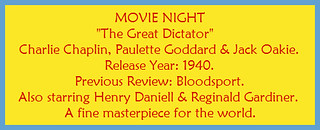 Review #1370: Life with Father.
Review #1370: Life with Father.
Cast:
William Powell (Clarence Day Sr), Irene Dunne (Vinnie Day), Elizabeth Taylor (Mary Skinner), Edmund Gwenn (Rev. Dr. Lloyd), ZaSu Pitts (Cousin Cora Cartwright), Jimmy Lydon (Clarence Day Jr), Emma Dunn (Margaret the Cook), Moroni Olsen (Dr. Humphries), Elizabeth Risdon (Mrs. Whitehead), and Martin Milner (John Day) Directed by Michael Curtiz (#125 - Casablanca, #416 - Yankee Doodle Dandy, #505 - The Adventures of Robin Hood, #529 - Mildred Pierce, and #719 - Mystery of the Wax Museum)
William Powell (Clarence Day Sr), Irene Dunne (Vinnie Day), Elizabeth Taylor (Mary Skinner), Edmund Gwenn (Rev. Dr. Lloyd), ZaSu Pitts (Cousin Cora Cartwright), Jimmy Lydon (Clarence Day Jr), Emma Dunn (Margaret the Cook), Moroni Olsen (Dr. Humphries), Elizabeth Risdon (Mrs. Whitehead), and Martin Milner (John Day) Directed by Michael Curtiz (#125 - Casablanca, #416 - Yankee Doodle Dandy, #505 - The Adventures of Robin Hood, #529 - Mildred Pierce, and #719 - Mystery of the Wax Museum)
Review:
"I put all the art into my pictures that I think the audience can stand."
"I put all the art into my pictures that I think the audience can stand."
What better way to accompany the 1940s than a family picture based on established material of the time? The film was based on the 1935 autobiographical book of the same name by Clarence Day, Jr, who had based it on episodes of humor in his family life, specifically his father in the 1890s. He died of pneumonia that year, but a follow-up book called Life with Mother was published posthumously in 1937. Two years later, the books were adapted into a play called Life with Father by Howard Lindsay and Russel Crouse, which ran for 3,224 performances in nearly eight years, and it still ranks as the longest running non-musical play on Broadway. The film was adapted to the screen by Donald Ogden Stewart (who you might recognize for his work on films such as Love Affair and The Philadelphia Story). It should prove no surprise that the film came from prolific director Michael Curtiz (who was 38 when he left Hungary for Hollywood, who could do a variety of genres through his own kind of visual style involving camera movement and lighting that combined with his intense style of activity (such as skipping lunch), with his friends nicknaming him "Iron Mike" for his fitness; in his 49-year career, he directed a total of 166 films before his death in 1962.
It is evident from the roughly $4.7 million budget that Warner Brothers wanted to make a big achievement in making this book-turned-play-turned film an engaging one that draws on the humor that its brash patriarch inspires, with varying results. I can't necessarily say that this is a great comedy, since it does tend to veer on the edge of being dated, but there is a decent cast and useful production value that makes it a fair curiosity. Powell commands the film with fairly amusing results, drawing a few laughs in his attempts in family humor with his type of bluster that seems somewhat relevant for a family comedy. Dunne (in a role that she found rattlebrained that took coaxing to do from Curtiz) accompanies him with her own kind of charm, matching in dignity through fair chemistry with Powell. Taylor, who had risen to teen star earlier in the decade with National Velvet (1944), does well with grace whenever on screen, having the most presence among the teenagers and children despite having scattered focus. Gwenn contributes with warmth and dignity that is to be expected from him. The film treads okay at 118 minutes, showcasing a 3-strip Technicolor tale of a comedy of manners that inspires chuckles more than yawns, even if it is entirely predictable (regardless of what era it was made in, I suppose). Life with Father is an average film with prominent talent and a prominent place because of its public domain status that makes it a decent gem worth looking for its look at a quirky family and the situations that come with them.
Overall, I give it 7 out of 10 stars.


